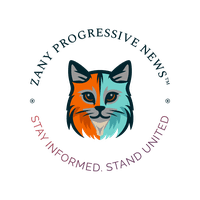Last updated on October 5th, 2024 at 12:58 pm
The ruling shows “how easily it might be deployed in our country for the same thing,” one expert said.
This worries me for the main reason cited in this article, but it worries me for another reason as well. The United States used to be a beacon of freedom and democracy that fought for human rights all over the world. Now that our reproductive rights have been taken away, you don’t think other countries will follow suit without the threat of the U.S. condemning their assault on human rights?
I can’t this thought hadn’t occurred to me before now. Please share your thoughts in the comments. I’d love to discuss this with you guys.
Thank you, Julieanne and Mother Jones for shedding light on this.
The ripple effects of Dobbs continue to emerge in unexpected places—and to threaten other civil liberties.
Yesterday, Uganda’s constitutional court, the country’s second-highest judicial body, cited the US Supreme Court decision overturning Roe v. Wade in its ruling to uphold the majority of a sweeping anti-gay law that criminalizes homosexuality and same-sex marriage, and allows for convictions of up to life in prison and the death penalty in some cases.
The court wrote that Dobbs constitutes a recent development “in human rights jurisprudence…where the Court considered the nation’s history and traditions, as well as the dictates of democracy and rule of law, to over-rule the broader right to individual autonomy.”
In the ruling, which came after the challenges to the “Anti-Homosexuality Act” passed by President Yoweri Museveni last year, the court repealed certain sections of the law, including those that criminalized renting property to LGBTQ people and mandated reporting “acts of homosexuality” to police.
But the fact that the court upheld most of the law obviously amounts to a massive setback for LGBTQ Ugandans—and offers a striking look at how Dobbs might be marshaled to restrict other rights both in the US and around the world.









